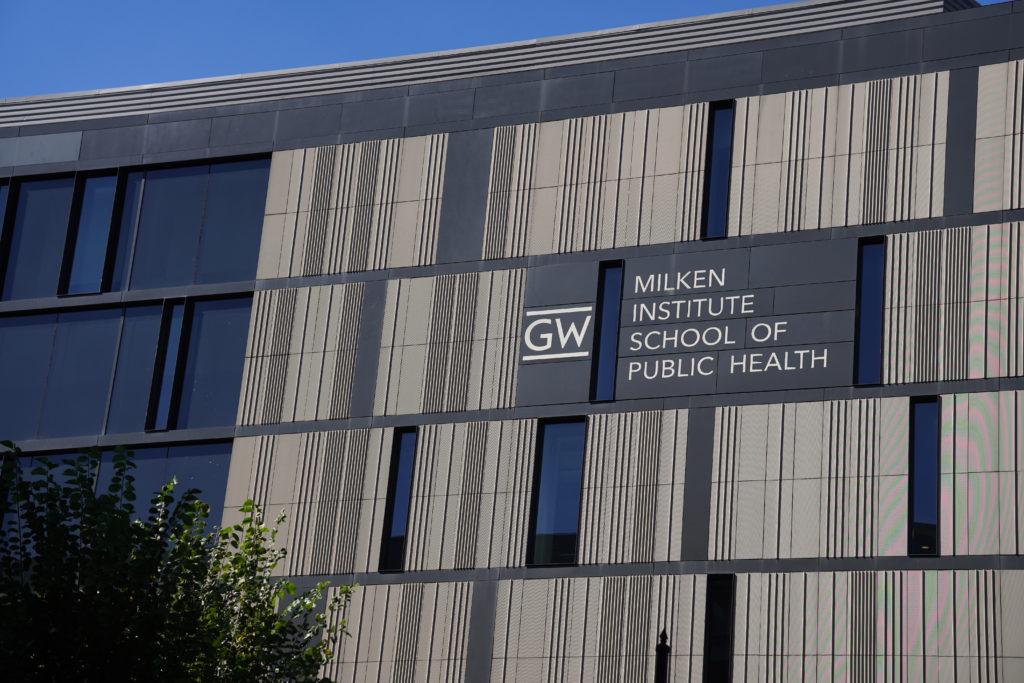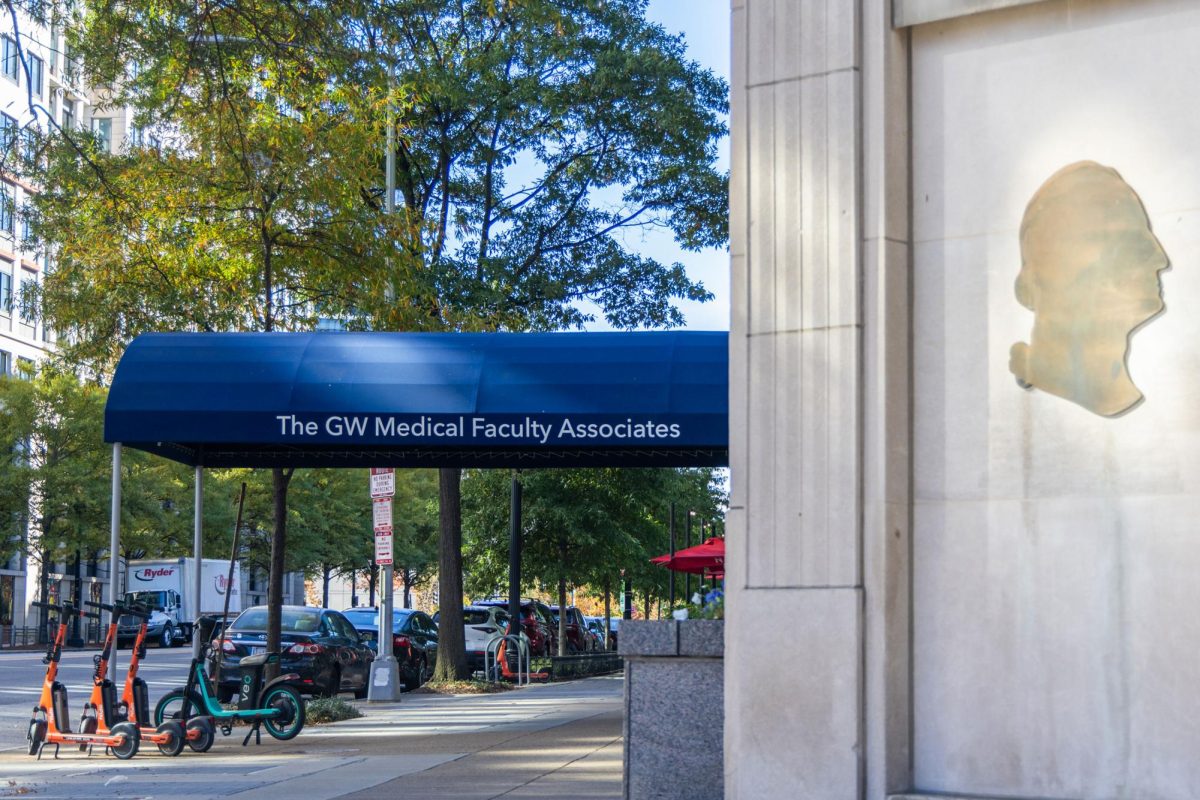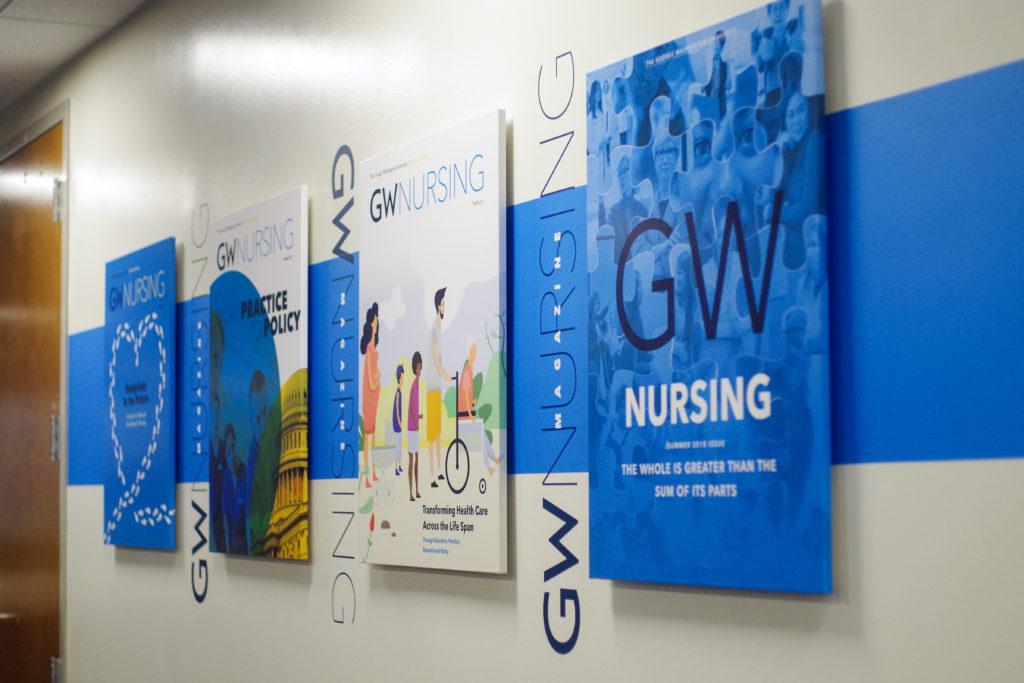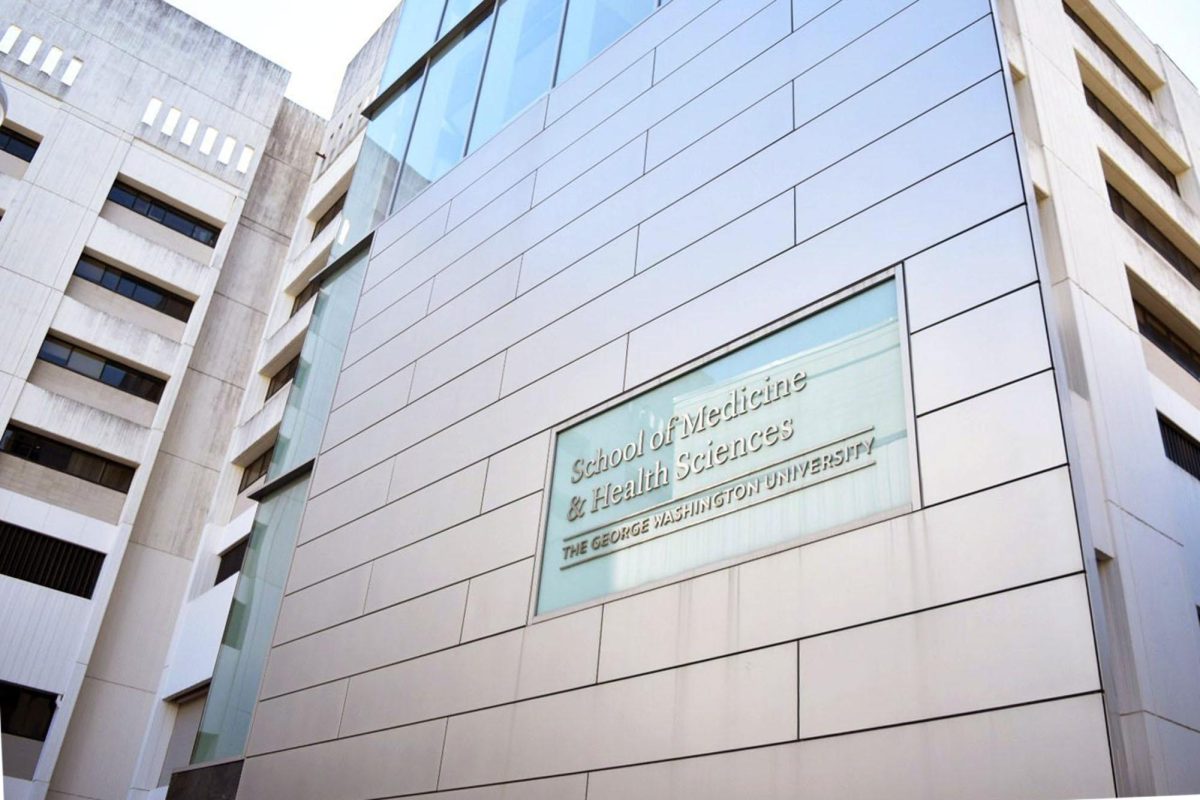As the Milken Institute School of Public Health eclipsed its 25th anniversary in July, officials said the school evolved from a fragmented subsection of the University’s academic medical enterprise to an independent, innovative and highly-ranked institution.
Milken Dean Lynn Goldman, who has led the school since 2010, said her focus on recruiting “world-class faculty,” promoting innovative research and negotiating for the 2011 independence from the University’s former Medical Center – which housed the School of Medicine and Health Sciences, the School of Nursing and the public health school – have contributed to Milken’s evolution and success. After a quarter century of growth, the public health school currently sits at the 11th spot on the US News and World Report’s ranking of public health programs.
“I really wanted to build up our public health research,” Goldman said in an interview. “I really felt that we had done extraordinarily well in terms of just plain growth. But I felt that we could become a more preeminent school.”
Growth in community, independence and research
GW’s public health school separated from SMHS in July 1997 to become an independent school. In the years that followed, the school struggled to recruit faculty as a brand new school with little funding, leading to criticism from the Faculty Senate for not having enough tenure-track professors.
Prior to the 2014 construction of its current building on 24th Street, the offices of The School of Public Health and Health Services were scattered across Foggy Bottom, from Ross Hall to leased buildings on K Street and M Street. And in 2006, the Faculty Senate listed the school as the second-highest priority for new facilities at the University.
Goldman said when she became dean, she set out to recruit new department chairs whose experience and connections in the public health community made them “more able to build world-class faculty.” Between 2010 and 2014, she hired more than 40 new faculty members.
“It’s been a strategy that we’ve used, which is building the leadership cohort in terms of having not only the dean herself and the subdeans and all of that, but chairs who are leaders and who make good decisions about bringing other people on board,” she said.
The public health school’s leadership currently includes 12 subdeans and seven department chairs.
Jim Tielsch, the chair of the global health department, said the construction of the current Milken building in 2014 allowed for increased community and collaboration among faculty members because the facility allows them to all work under one roof.
“One of the real advantages of having a building is we were able to consolidate all the departments to one place,” he said. “So, we have that opportunity to collaborate closely, to meet people in the hallway when we got back in person, and it’s made a huge difference.”
Tielsch said separating from the University’s former Medical Center in 2011 gave the public health school educational and financial independence and the opportunity to construct its own building. Before this separation, the public health school shared resources with SMHS and did not have control over its own budget.
In 2014, the public health school received $80 million in donations from financier Michael Milken and media mogul Sumner Redstone, leading the Board of Trustees to switch the school’s name from the School of Public Health and Health Services to the Milken Institute School of Public Health.
Goldman said portions of the donation fund the school’s Sumner M. Redstone Global Center for Prevention and Wellness, which is working to improve the nutritional value of the D.C. food supply and innovative equipment, like a biosafety level 3 laboratory that allows researchers to study viruses like COVID-19.
“In public health, most people don’t make a lot of money,” she said. “They’re comfortable, but they’re not wildly healthy. So we’ve had to seek out philanthropy from people of wealth who are not our alumni, which is not always the strategy that the University uses, but it’s a key strategy for us.”
The impact of the COVID-19 pandemic
From the onset of the pandemic in March 2020, faculty members in the public health school have diverted their research and public policy efforts to focus on combating the virus.
Researchers in the school launched studies on the impact of COVID-19 on displaced populations, developed diagnostic tests for the University to test community members for COVID-19 and partnered with a Missouri health foundation to evaluate the state’s response to the pandemic.
Incoming GW students’ interest in public health also rose throughout the pandemic, as enrollment in the public health school increased by more than 16 percent between the 2019-20 and the 2020-21 academic years.
Tielsch said the COVID-19 pandemic also placed a “dent” in Milkens broader research endeavors because faculty members involved in global collaborations were not able to travel due to pandemic-related restrictions.
“The challenge of course is it’s very difficult to develop, for example, new collaborations if you can’t meet in person,” he said. “It’s hard to do, especially in other countries and other cultures in the world. That face-to-face contact is really important.”
Goldman said the COVID-19 pandemic placed a new “spotlight” on members of the public health community who were used to working in the background. She said Milken needs to be concerned with how the stresses of the pandemic caused healthcare workers to experience “burnout” and drove some, particularly nurses, to leave the profession.
“What can be done to keep people in nursing, to bring people into nursing,” she said. “We can’t have good outcomes if we don’t have good nurses.”
Looking to the future and celebrating the present
Goldman said Milken officials are “intentional about diversification” and making the school’s faculty more representative of the world’s population. She said fostering a diverse community of faculty members provides the school with insight into how to respond to public health issues that disproportionately impact marginalized communities, like the disproportionate impact monkeypox has on the LGBTQ+ community.
“We’re hit by monkeypox, and immediately I can go to those faculty members, and there are things they understand that are incredibly important to being able to try to snuff out monkeypox,” she said.
Goldman said she is excited about the restructuring of GW’s academic medical enterprise in which the University’s sale of its minority stake in GW Hospital left the Medical Faculty Associates and SMHS as its sole clinical institutions. She said she hopes to continue to strengthen the relationship between Milken and SMHS to work together to fight chronic diseases like cardiovascular disease.
“Some of what we need to do requires very strong clinical partnerships, so I’m very excited about some of the transformations that are happening over there,” she said.











